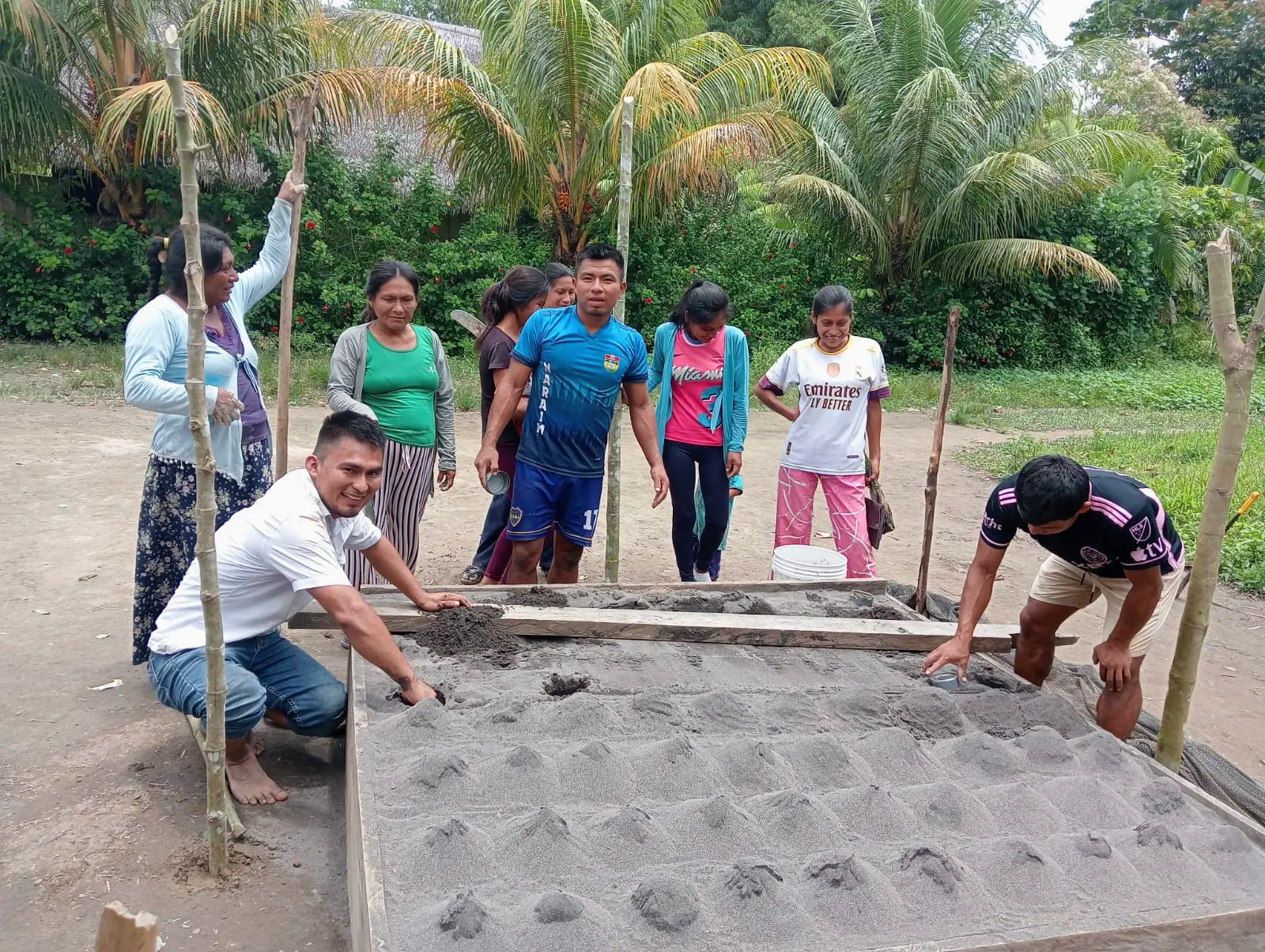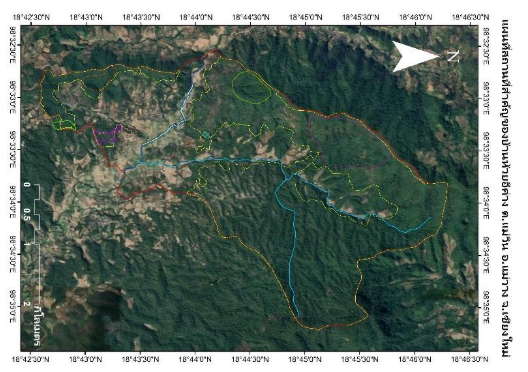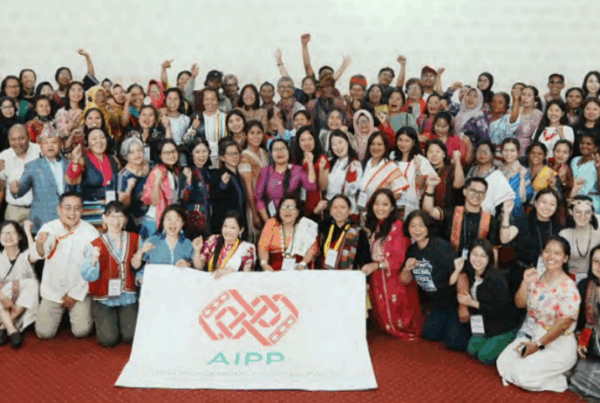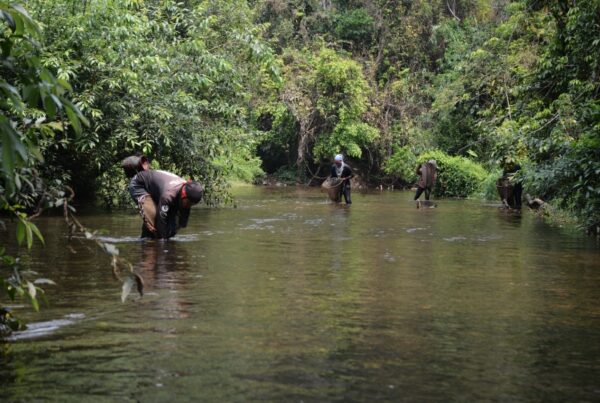As part of its autonomous territorial governance policy, the Autonomous Territorial Government of the Wampís Nation (GTANW), together with six communities in the Kankaim (Morona) and Kanus (Santiago) river basins, is promoting a successful plan for the management and repopulation of taricayas and charapas. To date, more than 7,500 eggs are being safeguarded, ensuring food sovereignty and the preservation of biodiversity.
In July, the Autonomous Territorial Government of the Wampís Nation (GTANW) began implementing its strategic plan for the repopulation of the taricaya (Podocnemis unifilis) and charapa (Podocnemis expansa) turtles. Both species are fundamental pillars in the diet of the Wampís’ communities and represent a basis for their autonomous economy, making their management and conservation a priority for the Wampís self-governance.
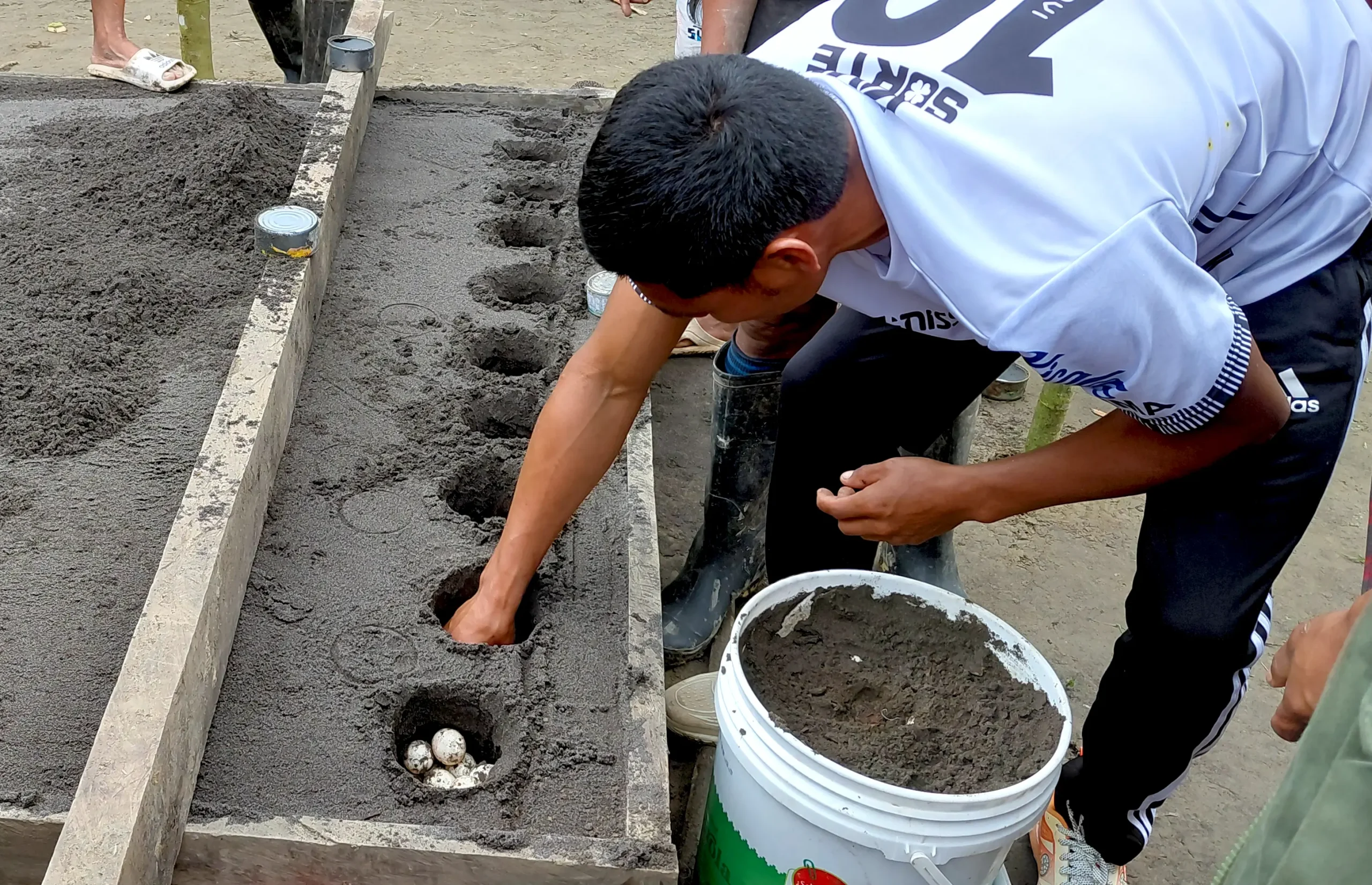
Photo Credit: the Autonomous Territorial Government of the Wampís Nation (GTANW)
This work is led by committed families from the communities of San Juan, Puerto Juan, Sánchez Cerro, San Francisco de Chiwaza and Libertad, in the Kankaim basin (Morona River), joined by the community of Ayambis, in the Kanus basin (Santiago River).
The collective effort has yielded remarkable results, with a total of 252 protected nests and more than 7,500 eggs incubating on semi-natural beaches. In the Kankaim basin, communities manage 190 taricaya nests containing 5,184 eggs and 12 charapa nests with 842 eggs. Added to this achievement is the work in the Kanus basin, where the Ayambis community guards 50 taricaya nests with approximately 1,500 eggs. The nesting season continues, and more nests are expected to be added in the coming weeks.
Participating families received training and strengthened their knowledge of the processes of collecting eggs from the natural environment, planting them and caring for the nests to ensure a high hatching rate.
The repopulation of these species is a fundamental component of GTANW’s territorial governance. With this initiative, the Wampís Nation reaffirms its commitment to preserving the natural resources that exist in its territory, developing its own management tools that guarantee sovereignty and the continuity of a collective abundant life (Tarimat Pujut).
This initiative is promoted by the ‘Transformative Pathways’ project, implemented by GTANW with the support of its allies Forest Peoples Programme and with funding from the German government’s International Climate Initiative (IKI).
